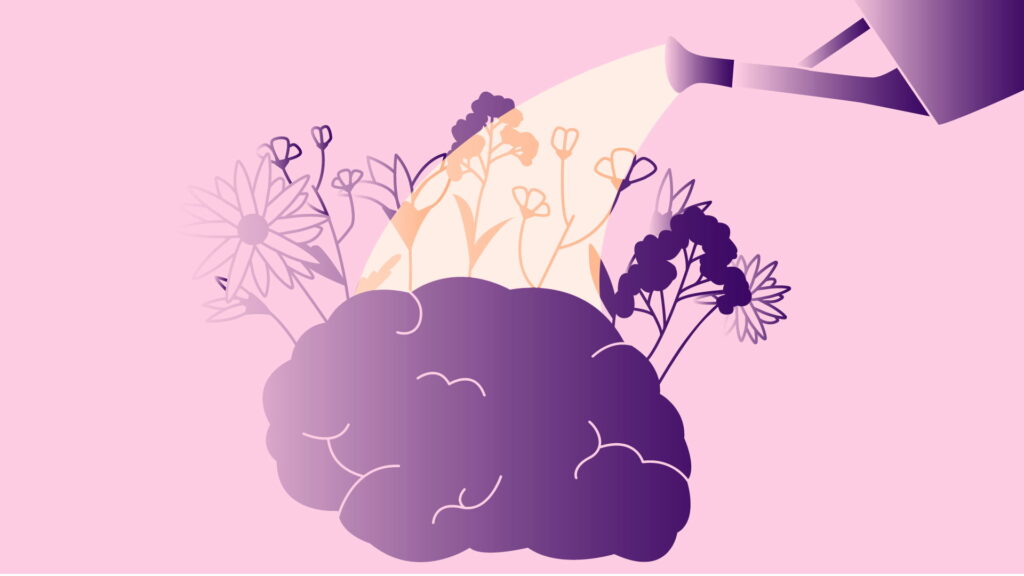Focus on the present by practicing mindfulness

Mindfulness is the practice of being fully present and engaged in the moment, noticing your thoughts, feelings, and surroundings.
It’s a skill you can learn and practice to help you focus on what is happening here and now rather than dwelling on the past or worrying about the future.
How does mindfulness work?
It encourages you to be less judgemental of your experiences and instead become more accepting. The goal is to become more aware of the present moment, focusing your attention on sensations.
Many mindfulness practices involve focusing on your breath, whilst allowing busy thoughts to enter through your mind and then be let go of by refocusing your attention back to your breathing.
Studies have suggested that practicing mindfulness can provide a number of benefits including:
- Feeling calmer and less stressed
- Becoming more self-aware
- Coping better with difficult thoughts
- Positively changing the way we see ourselves and our lives
According to News in Health, mindfulness-based treatments have been shown to reduce anxiety and depression. There’s also evidence that mindfulness can lower blood pressure and improve sleep.
Try practicing mindfulness for at least five minutes every day.
Here are some mindful exercises you could try:
- Mindful eating – Eating consciously, engaging all your senses and acknowledging responses, feelings, and physical cues like hunger or fullness. Have a go using this simple guide from Mindful.
- Mindful meditation – Try out this guided relaxation and reflection led by University Chaplain Natalie Steel.
- Mindful moving – Bring your awareness to your movement and focus on your breath or the way your body feels as it moves. You can use this two-minute mindful movement practice to guide you.
- Bodyscan – Scanning your body for pain, tension, or anything unusual can help you feel more connected to your physical and emotional self. Find out more from Calm.
- Mindful colouring and drawing – Freestyle with any materials you like to use, LU Arts have online mindfulness workshops or you can download their ‘Keep Calm & Carry On Colouring’ book pages.
Tips for practicing mindfulness
- Pick a regular time to practice, this could be first thing in the morning or before you go to sleep
- Keep bringing your attention back if your mind starts to wander but be kind to yourself, as it’s easy for this to happen
- Take it slow by building your practice, remember that it takes time to learn a new skill
- Try out apps to help you such as Headspace, Calm, Buddhify or Smiling Mind
Health and Wellbeing
Wellbeing means being in a positive physical, social and mental state. Wellbeing is important to us as happy, healthy people who achieve harmony in their work / life mix are more creative, productive and help to create a great place to work.